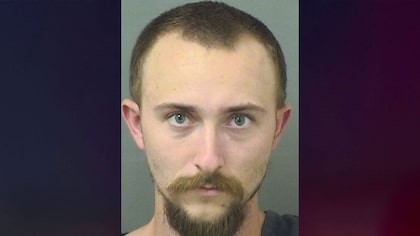Family, attorney urge review of process of Jennifer Jeffley juvenile murder conviction
02/16/2017 12:21 pm PST
A family's desperate fight to get their daughter out of prison: Jennifer Jeffley, convicted of murder at the age of 15, has spent more than half of her life in prison.
Is she really guilty, or was she just a naive kid who made a mistake?
Nerissa Knight has an exclusive Crime Watch Daily interview with Jennifer Jeffley from behind bars.
A brutal murder in a Houston apartment. Police soon nab their killer, and a confession. But a lot doesn't add up. So how did a 15-year-old girl get charged, convicted and sentenced to life for the murder?
Now, 20 years later, in a Crime Watch Daily exclusive, Jennifer Jeffley speaks out for the first time from behind bars to call out the people who put her there and proclaim her innocence.
Growing up, the tight-knit religious Jeffley family didn't have much -- but they had each other.
"I had a good life," said Jeffley. "I had mom, my two older sisters, my two older brothers. As a single parent my mom always struggled, but she provided enough."
Those struggles became even more challenging when tragedy struck, not once, but twice. Within two years, two deaths: First, the eldest boy was shot to death on a summer break home from college; then a year later, the youngest fell ill and died. What the Jeffleys didn't know is they were about to lose another one of their own.
Late October 1996, at the Green Arbor Apartments in Houston, Texas: The Jeffleys are new to the city and newer to the complex, moving in only three months before. Jennifer, 15, was in 8th grade at the time. She'd been held back for missing school, mostly for staying home to care for her ailing brother. On this night she is staying over at her friend Eva Mondragon's, who also lives in the complex. Also with her that night at Eva's were two other friends: Kenneth Driver and his brother Farrell Smith.
The next morning, Jennifer gets a page from family friend Craig Peters. Eva's phone isn't working so Jennifer goes to another neighbor's house to call him.
"I got up, washed my face, brushed my teeth, got dressed, went to the apartment that was in the very front apartment, number 3, to Janet Dorsey. Talked to her for a little while," Jennifer tells Crime Watch Daily. "I waited maybe 30 minutes for Craig Peters to return my call. He returned my call, we talked."
After they hang up, back at the apartment the first thing Jennifer sees is Eva outside looking over the fence of her downstairs neighbor, Maria Palomina.
"When I came back she was standing on the stairs looking over Mrs. Palomina's balcony. I went upstairs looking for my friend and his brother," said Jennifer. "When I came back down, that's when she was hysterical."
When Houston Police arrive, they find 71-year-old Maria Palomina had been viciously murdered.
The medical examiner later determined Palomina died from "multiple sharp force injuries associated to blunt force trauma to the head." Palomina also had been stabbed multiple times.
In the apartment, cops find broken pottery around the victim, an open kitchen drawer covered with plastic, two purses that had been rifled through, and blood in multiple locations. Cops talk to the apartment staff and residents.
What really happened inside that Houston apartment complex? A woman is dead, and the first people who arrived at the crime scene keep changing their story.
Maria Palomina had been savagely murdered in her downstairs apartment. Jennifer Jeffley, 15, says she wasn't there when it happened. She was at a neighbor's apartment on the phone talking to a family friend.
But Jennifer says her friend and the upstairs neighbor of the victim, 24-year-old Eva Mondragon, allegedly wanted her to tell police something else -- that they had been together at the time of the murder.
"I was in a whole 'nother location," Jennifer tells Crime Watch Daily. "She said our lives was in danger if we didn't say that we were together."
What did that mean? And were Eva and Jennifer going to give cops the same version of events?
At the scene, Houston Police deduce Mrs. Palomina was hit over the head with a piece of pottery and stabbed multiple times with a knife from her own kitchen, a knife that seemed to be missing.
They collect their evidence, take witness statements, then leave, only to return the next day for Jennifer.
"The following morning they came to my mother's apartment. They told my grandmother they needed to take me back to the precinct to ask me additional questions," Jennifer says. "My grandmother asked could she ride with him. I still remember this: it was a 1996 4-door Ford Taurus, brand new, 'cause it still had that new car smell, but he told my grandmother there wasn't enough room in the car for her to ride with us, so my grandmother told him OK, because we hadn't been in Houston that long, 'Would you allow me to go get my purse and my car keys and follow?' He says yes, so as my grandmother turns around to walk up the sidewalk, he gets in the car and drives off."
With 15-year-old Jennifer in the car.
At the station, Sergeant Waymon Allen and Detective Roy Swainson interviewed the 8th-grader. According to court documents, the interrogation of the minor was not video- or audio-taped.
Today, in a Crime Watch Daily exclusive, Jeffley is speaking from behind bars to our Nerissa Knight. And what she's saying certainly makes you wonder if cops got the wrong person.
The 8th-grader is alone, being interrogated without a parent or attorney present. Jennifer gives cops a few different versions of events. But the truth, she says, is that at the time of the murder, she was at neighbor Janet Dorsey's house talking on the phone with family friend Craig Peters.
Cops tell her they've got proof to the contrary.
After almost nine hours of questioning and with the alleged promise she'd get to go home, Jennifer gives a fourth and final statement. It would be considered her confession.
Did Jennifer write the statement?
"No, it was typed by detectives, it was later signed by me," said Jennifer. "They told me once I had signed the statement I'd be able to go home. I was so tired and so depleted of energy, I would've signed whatever they put in front of me."
Jennifer says she did not read the statement either.
After the statement is signed, the detective speaks with Jennifer's mom, Jacqie.
"He told me very rudely, 'She's not coming home, she's been charged with capital murder," said Jacqie.
The 8th-grader was charged with capital murder.
Jennifer is taken before the magistrate, where her juvenile rights are read to her. An argument is made to keep the case in juvenile court. But the judge disagrees and rules that 15-year-old Jennifer should be tried as an adult, despite 17 being the legal age for an adult in Texas.
She is then assigned a public defender, who allegedly won't return Jennifer's calls, letters or talk to her mother Jacqie. One year later, the case goes to trial. Jacqie met the public defender on the first day of the capital murder trial.
Jacqie believes Jennifer's attorney failed her in many ways, especially by not calling any alibi witnesses.
"I was the last one to talk to her, and no one got in touch with me," said family friend Craig Peterson.
Jennifer Jeffley was found guilty of capital murder and sentenced to life in prison, with eligibility for parole after serving 40 years.
Jennifer appeals her conviction. For that appeal, the judge assigns Jennifer the same public defender. The appeal was denied.
Then years later, Jennifer's family tries again, this time hiring a new attorney, Rocket Rosen. The basis for his appeal was ineffective assistance of counsel.
"The attorney that was appointed to represent Jennifer Jeffley failed miserably at his job," Rosen tells Crime Watch Daily. "I zoomed in on the one issue: the confession."
"He didn't raise the issue to the trial judge to suppress her statements and confession," said Rosen. "Her statement, statements should never have come into evidence."
Rocket says because of this, it was easy for the jury to convict her.
"The jury was tainted. They received illegal evidence. You were never getting past that statement: 'I was involved in a capital murder' out of her own mouth,'" said Rosen. "She had no shot."
"For your child to go on a field trip, what do you have to do? Sign permission, sign consent," said Rosen. "Now we're dealing with a young lady's life. Law enforcement knows this and it's frustrating."
Despite what seemed like overwhelming evidence, once again Jennifer's appeal was denied. Then a few years later, Jennifer receives a bombshell letter.
"I get a letter from the Houston crime lab, the DNA in my case is not the DNA that belongs to my case," said Jennifer. "Unknown parties."
Jennifer Jeffley has been in prison for nearly 20 years, largely for what she confessed to police during an intense interrogation. However, her lawyer says holding a 15-year-old for nearly nine hours without a parent or a lawyer present should make that confession invalid.
Crime Watch Daily reached Eva Mondragon, who initially agreed to a sit-down interview, but then changed her mind citing safety concerns. But in a phone interview with our producer, she says she remembers things went down very differently.
The Jeffley family still has many unanswered questions, including: What did Eva tell police in her statements after the murder? Rocket Rosen told Crime Watch Daily the case file is sealed because Jennifer was a juvenile -- but how could that be when she was tried as an adult?
If in Jennifer's fourth statement, the one which got her convicted, she named two men as accomplices. Where are they and why weren't they charged and tried?
Also, with no physical evidence linking Jennifer to the scene, whose "unknown" DNA did they find? And has that DNA since been put into the system to see if there are any hits?
Crime Watch Daily reached out to the Houston Police Department multiple times. They declined to comment.
We also reached out to the Harris County District Attorney, Jennifer's public defender, retired Detective Swainson and retired Sergeant Allen. They never returned our calls.
In court documents, though, Sgt. Allen testified that at the time he was interrogating Jennifer, he did not consider her to be a suspect, he was merely trying to find out what happened and to fill in the gaps in the sequence of events.
"I don't believe they made a mistake. I believe they intentionally and knowingly took my life with malice and intent to appease the family or for a conviction rating, success rate," said Jennifer.
Jennifer Jeffley won't be eligible for parole for another 20 years, when she'll be 55.





